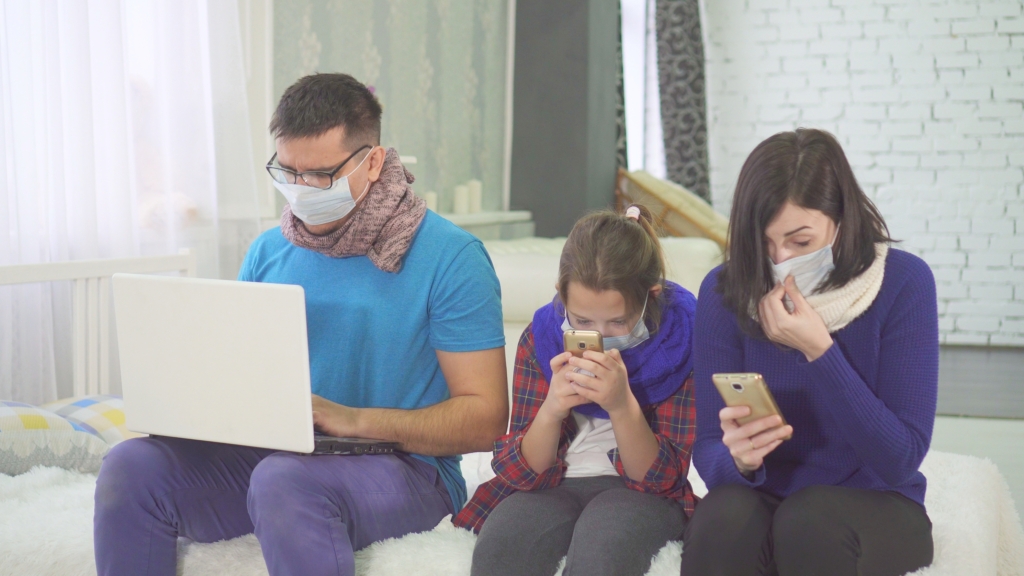Employers do not owe a duty of care to prevent the spread of “take-home Covid” among employees’ family members, the California Supreme Court concluded in a new published opinion on Thursday.
The high court issued a 53-page unanimous decision in the case of Kuciemba v. Victory Woodworks, which addressed questions that arise in “take-home Covid” cases. By “take-home Covid,” we mean a case where an employee allegedly gets Covid-19 at work, transmits it to their spouse, then sues in Superior or federal court for negligence, wrongful death, or similar theories.
The state Supreme Court issued the decision after the Ninth Circuit Court of Appeal asked it to rule on two questions that tend to arise in these types of cases.
Those questions were:
- If an employee contracts Covid-19 at his workplace and brings the virus home to his spouse, does California’s derivative injury doctrine bar the spouse’s claim against the employer?
- Under California law, does an employer owe a duty of care to an employee’s household members to prevent the spread of Covid-19?
The justices determined the answer to both questions is “no.”
In other words, the court determined that:
- The exclusive remedy of workers’ compensation and the derivative injury doctrine do not bar a spouse’s (or family member’s) claim against an employer for “take-home Covid.”
- Employers do not owe a duty of care to nonemployees to prevent the spread of Covid-19.
While Kuciemba’s case was pending, the 2nd District Court of Appeal had addressed the first question in the 2022 decision of See’s Candies v. Los Angeles Superior Court, but did not reach the second question.
Regarding exclusive remedy, the court adopted the reasoning of the 2nd DCA in the See’s Candies case and determined the exclusive remedy does not bar spousal claims against employers for “take-home Covid”. They ruled that so long as there is a logical or legal basis separate and apart from the employee’s injury, the household member can bring such an action. But that is a different question than whether the household member can satisfy the basic elements of a negligence claim.
As for the second question as to whether there was a duty, the high court wrote extensively about why it would be inappropriate to impose a duty of care on employers to prevent the spread of Covid to employees’ households.
“Although it is foreseeable that an employer’s negligence in permitting workplace spread of Covid-19 will cause members of employees’ households to contract the disease, recognizing a duty of care to nonemployees in this context would impose an intolerable burden on employers and society in contravention of public policy,” Justice Carol A. Corrigan wrote. “These and other policy considerations lead us to conclude that employers do not owe a tort-based duty to nonemployees to prevent the spread of Covid-19.”
Lawyers in the audience tend to know that arguing public policy is often considered a long shot. However, here, the public policy of a decision imposing such a duty on employers would unfairly place the burden of the pandemic on employers. In its “friend of the court” brief, the U.S. Chamber of Commerce warned, and rightly so, that such a duty would cause a tidal wave of litigation in the form of millions of plaintiffs suing millions of employers, causing economic ruin statewide.
“In addition to dire financial consequences for employers, and a possibly broader social impact, the potential litigation explosion facilitated by a duty to prevent Covid-19 infections in household members would place significant burdens on the judicial system, and ultimately, the community,” Corrigan wrote. “As amicus curiae CEA aptly put it, ‘If there was ever a ‘floodgates’ situation, this is it.’ Courts would have to manage a very large number of suits, and variations in individual exposure history would make it difficult, if not impossible, for the cases to be grouped into collective or class actions. Fact-specific disputes could also make these cases complex and time-consuming to litigate.”
The justices determined that California’s legal system would struggle to handle the type of “floodgates” scenario that imposition of an additional duty on employers would bring. For businesses and local governments, the imposition of such a duty “has the potential to destroy businesses and curtail, if not outright end, the provision of essential public services.”
The high court also referenced decisions and reasoning from other courts around the country in support of its reasoning. Of note, none of the seven justices dissented which only adds to the weight of the decision.
The Law Offices of Bradford and Barthel will have more analysis on this 53-page decision from the California Supreme Court in the future. To read the decision, go here:
https://www.courts.ca.gov/opinions/documents/S274191.PDF
Got a question about workers’ compensation defense issues? Feel free to contact John Kamin or Louis Larres. Mr. Kamin is a workers’ compensation defense attorney and equity partner at Bradford & Barthel’s Woodland Hills location, where he monitors the recent legislative affairs as the firm’s Director of the Editorial Board. Mr. Kamin previously worked as a journalist for WorkCompCentral, where he reported on work-related injuries in all 50 states. Please feel free to contact John at jkamin@bradfordbarthel.com or at (818) 654-0411. Louis Larres is a partner and area managing attorney at Bradford & Barthel’s Fresno office, and the Director of the firm’s Appellate Division. Please feel free to contact Louis at llarres@bradfordbarthel.com or at (559) 221-6500.
Viewing this website does not form an attorney/client relationship between you and Bradford & Barthel, LLP or any of its attorneys. This website is for informational purposes only and does not contain legal advice. Please do not act or refrain from acting based on anything you read on this site. This document is not a substitute for legal advice and may not address every factual scenario. If you have a legal question, we encourage you to contact your favorite Bradford & Barthel, LLP attorney to discuss the legal issues applicable to your unique case. No website is entirely secure, so please be cautious with information provided through the contact form or email. Do not assume confidentiality exists in anything you send through this website or email, until an attorney/client relationship is formed.




